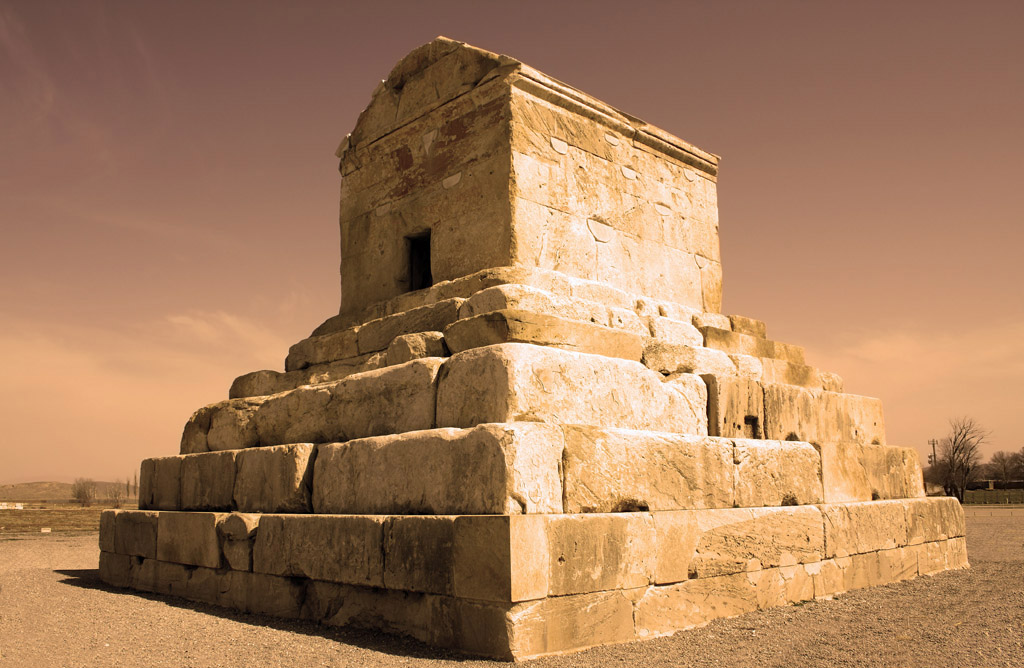On naming a day after Cyrus the Great

EghtesadOnline: When Cyrus the Great, King of Persia and founder of the Achaemenid Empire, entered the land of Babylon in 539 BC as a conqueror, he treated people in a way different from that of the ordinary conquerors of that time. He never violated their dignity and human rights and this has turned that day into a historic day for humanity.
According to historical documents, new territories in Asia were captured by the Army of Cyrus the Great in an unfought war.
Upon his entry to Babylon, Cyrus adopted a different approach in treating the people living in the new captured lands, allowing them, instead, to hold on to their religious and ethnic values and live a free life, reports IRNA.
The approach taken by the Iranian king has happened to go down in history to make him the harbinger of human rights.
Centuries after the world first charter of human rights was written on a piece of clay in cuneiform script and known as the Cyrus Cylinder, it seems that the Iranian nation consider it a significant national priority to acknowledge what the just king did to serve 'We the Peoples', as the United Nations puts it, and to celebrate the precious legacy left by the Iranian emperor.
While October 29 is observed by many across the world as Cyrus the Great Day or Cyrus Day, there is no special day designated on the Iranian calendar for the Persian king globally-admired for introducing what regarded by many as the first charter of human rights.
'Cyrus is highly praised by the world nations for what he and his Army did after the capture of Babylonia,' author and researcher of religious texts Mohammad Mehdi Jafari told the Islamic Republic News Agency (IRNA) in a recent interview.
'He respected the people who came from diverse ethnicities and religious backgrounds and helped reconstruction of Al Quds and allowed the Jewish exiles to return to their own homes, carrying with them their sacred temple vessels,” Jafari said referring to the fact that Cyrus treated the Jews (who were exiled in Babylonia) in the conquered territories in a civilized way and allowed them to return home in 539 BC.
Jafari also said that it seems necessary for the Iranians to designate on their official calendar a day for celebrating Cyrus in a bid to promote the doctrine of human rights introduced by the Iranian emperor for the first time in history.
One of the benefits of designating a day for remembering Cyrus the Great, the first guardian of the rights of nations, on the Iranian calendar is going to be warding off all misleading ideas surrounding the exceptional figure in the Iranian and world history.
Noting that Cyrus has made many contributions to the global human society, Jafari urged the need to develop a guideline for celebrating the Persian King.
'By referring to the authentic views developed by the Iranian academics and historians, we can lay down a reliable guideline for designating a day in our calendar for celebrating Cyrus,' he said.
'This is going to be a gallant effort that will show the patriotism of the Iranian people while it will stop abusing the issue by others.'
Currently, there is no official day named after the Iranian King who is also the inventor of the world’s first human rights declaration, neither on the Iranian calendar nor on the calendar of the United Nations Educational, Scientific and Cultural Organization (UNESCO). Regarding the respect given by the Islamic establishment of Iran to the great figures of the county, it seems quite possible that a certain day be designated to Cyrus in the Iranian calendar.
President Hassan Rouhani in a visit to the Takht-e Jamshid Palace (Persepolis) in Fars Province last year said, “These historical sites are telling us that we are a great nation capable of doing great jobs.”
Meanwhile, Supreme Leader of the Islamic Revolution Ayatollah Seyyed Ali Khamenei had once said in a visit to Fars Province (the land where the tomb of Cyrus is located) in 2008, “Those nations who have no great figures in their history, try to create some. We have so many great names in our history that are the source of our national pride and self-reliance so why we are not showing them?


